Vanderbilt is ranked 154th for administrative support of free speech by the Foundation for Individual Rights and Expression.
For those of us who have attempted advocacy on campus, this comes as no surprise. Recent changes to the university’s expression policies ask students to register their protests with the administration and allow administrators to relocate or terminate demonstrations at their discretion.
Take the Feb. 14 Jewish Voice for Peace demonstration at Rand Wall. These students peacefully advocated for a cause they believed in near their peers, holding up a banner and passing out flyers. From my perspective, they were learning how to make a case to their fellow students, an asset for graduates in the real world.
How did the administration respond to them? By evicting them from outside the Rand student hub, and ordering them further out on Alumni Lawn, casting them out to a location useless for discourse with others.
If a tree falls in the forest and no one is around to hear it, it does not make a sound. If students are similarly forced to organize out of sight and away from their peers, can they ever truly be heard?
By regulating where free speech can and can’t occur, Vanderbilt is violating its obligation “not to protect students from ideas, but rather to expose them to ideas.”
Policies meant to sequester free expression to the most remote areas of campus are not new.
Take the case of Dores Divest, a campaign I helped co-found in 2020. Despite having widespread support from students, faculty and prominent alumni, the administration, particularly Chancellor Diermeier, said they “have no intention of meeting with them [student activists]” to start a dialogue on the topic. When students hung signs expressing concern about the lack of engagement, they were written up by Student Accountability.
Unable to bring administrators to the table, we attempted to utilize the promised “open forum” of campus to make our case. During Reunion Weekend in October 2022, which was open to the university community, we considered distributing informational pamphlets to attendees. We went by the book, and even included a contact point on our brochures as required by expression guidelines.
However, the day before the event, we received an email from Student Affairs staff, outlining limited “designated areas” where various levels of expression would be allowed.
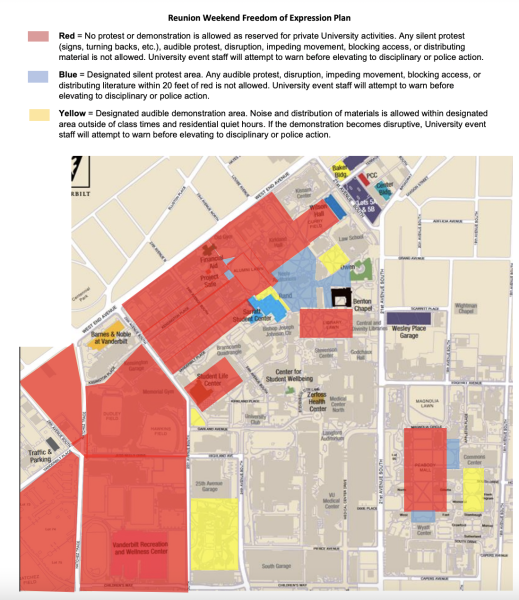
Nearly two-thirds of campus was a “red zone,” where no free expression of any kind was permitted. The guidelines prohibited us from turning our backs, holding signs or even silently offering literature to others in the red zone, which included dorms and academic buildings. The “blue” and “yellow” zones allowed expression so long as it was not “audible,” or “disruptive,” respectively. Police action was repeatedly threatened for violating any aspect of this mandate, which effectively discouraged many of our peers from participating.
The message was clear — the administration would technically let us exercise our speech, but not near where students or alumni might actually hear it. We were effectively “shadow-banned” from campus discourse.
If the university can unilaterally ban expression from these places before it even occurs, how can we fulfill the Chancellor’s charge to be “the last, best place where American citizens can learn to coexist, converse and cooperate with people whose views differ from their own”?
As a proud Double-Dore alumni, it pains me to think that fellow Commodores are again being subjugated to disciplinary action for the “crime” of wanting to engage their peers on today’s most pressing topics outside of class. I’m further worried that these policies might discourage students from entering the advocacy space altogether, especially given how essential my campus organizing experiences were for enabling me to work in policy after graduation.
Student and faculty leaders should actively fight to have these restrictions undone, but some causes are too important to wait for admin to get its act together. In the meantime, here are a few alternative strategies I relied on as GSC president that can help you achieve change in this environment.
First, don’t play Vanderbilt’s game — protest on the public property parts of campus. This unlocks Constitutional protections that the administration can not infringe on. The speech and literature bans, the police action, all of it stops if you’re willing to move your advocacy onto any of the non-private Nashville sidewalks that crisscross through campus.
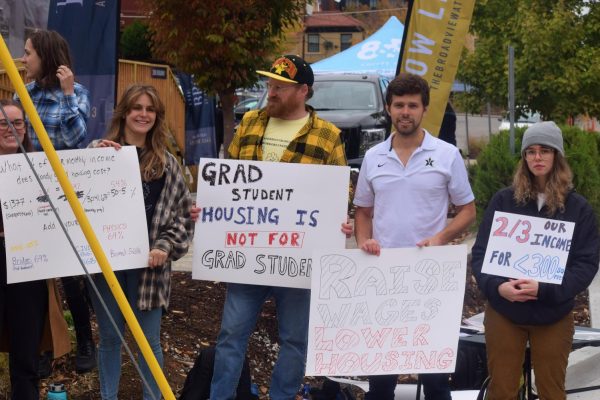
Second, when off-campus protest fails, hit Vanderbilt where it really hurts — in its pocketbook and its reputation. There’s a reason that Vanderbilt is faster to send emails about its U.S. News ranking dropping than it is to send communications about genuine threats to campus safety — by and large, the admin’s top priority is to signal status and turn a profit.
In the Graduate Student Council, we leveraged the admin’s interest in rankings to help win higher stipends. Shortly after we published an op-ed that directly compared Vanderbilt’s stipend to those of other top-ranked universities, the admin announced an unprecedented second round of raises for many of our constituents. By showing administration that we were willing to partner with union organizers (an expensive proposition for the university), we won dental insurance coverage for graduate students.
Undergraduates also have strong financial levers they can pull to capture the University’s attention — your own tuition dollars. Despite large endowments, top schools, including Vanderbilt, rely heavily on tuition to keep the lights on. Withholding even a few tuition payments at the beginning of a semester may disrupt the university’s ability to ignore community concerns. This tactic did the impossible and won both financial aid increases and fossil fuel divestment in 2021 at Columbia University.
My last piece of advice is to put together a great team. While I’m glad that these tactics helped win improvements for graduate students, my proudest contribution to the campus community was talking Kyra, Bill, Mike and others into running for GSC office with me. These folks worked relentlessly behind closed doors with the deans and Graduate Workers United to win and implement the real change.
Regardless of the all-caps emails you may receive from admin suggesting that community activism is somehow shameful, remember that what you and your fellow advocates are doing is essential for campus wellbeing — don’t give up on your advocacy.


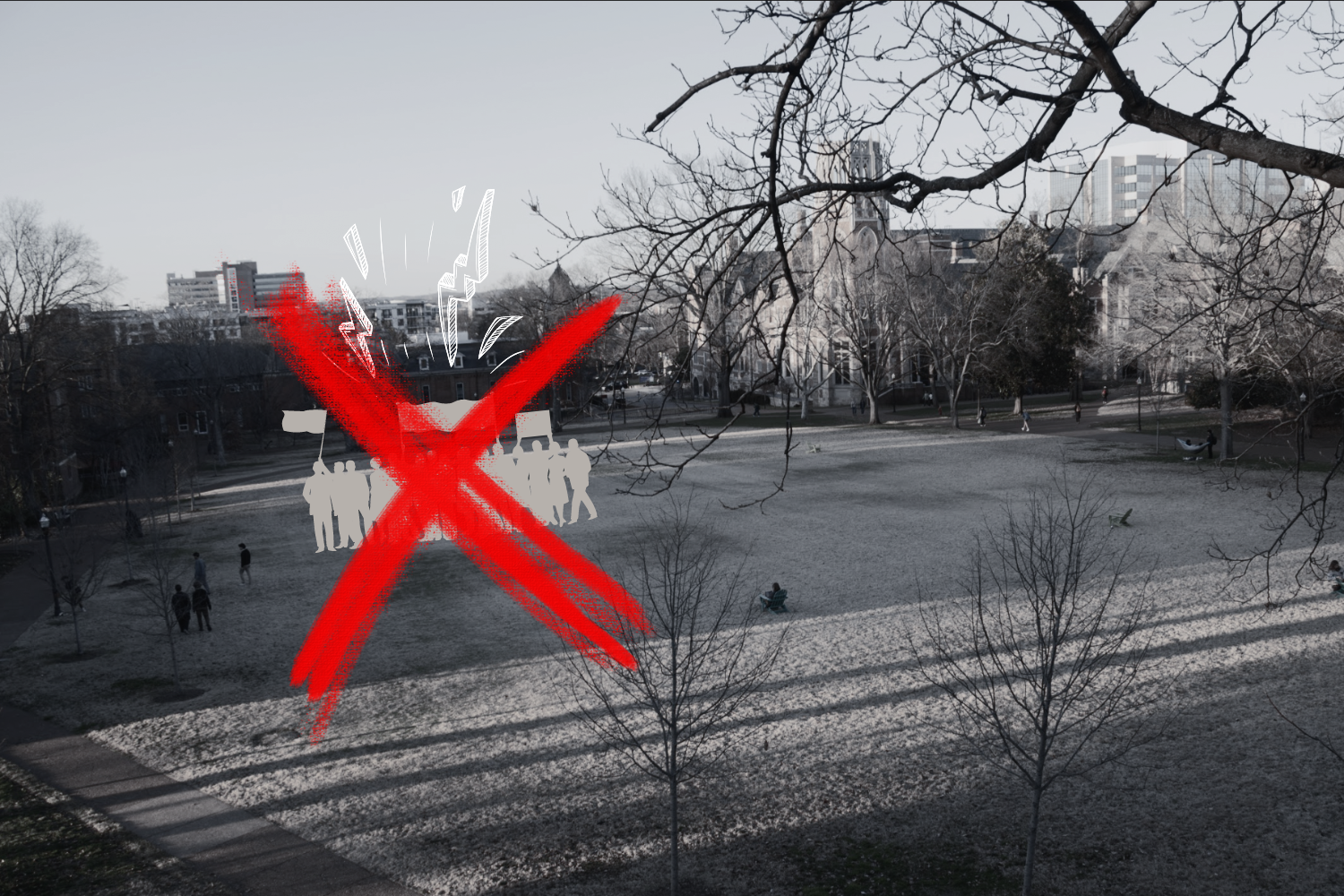



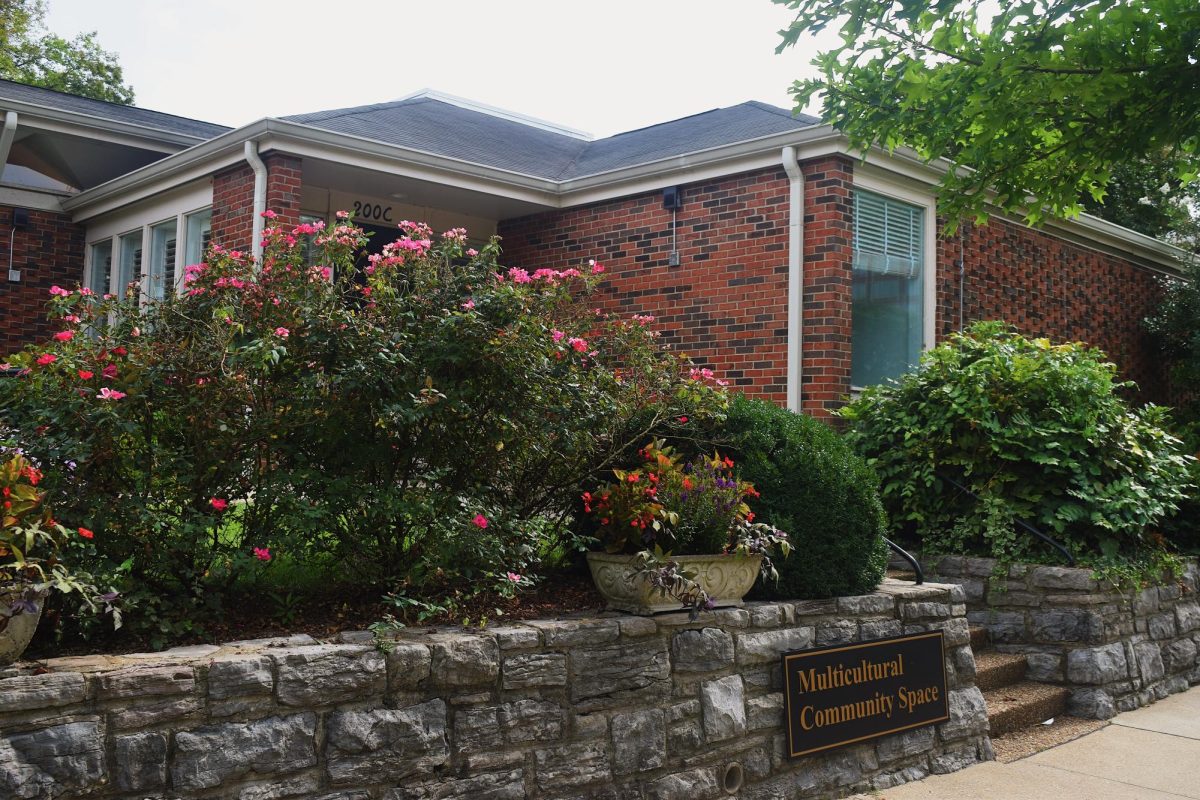
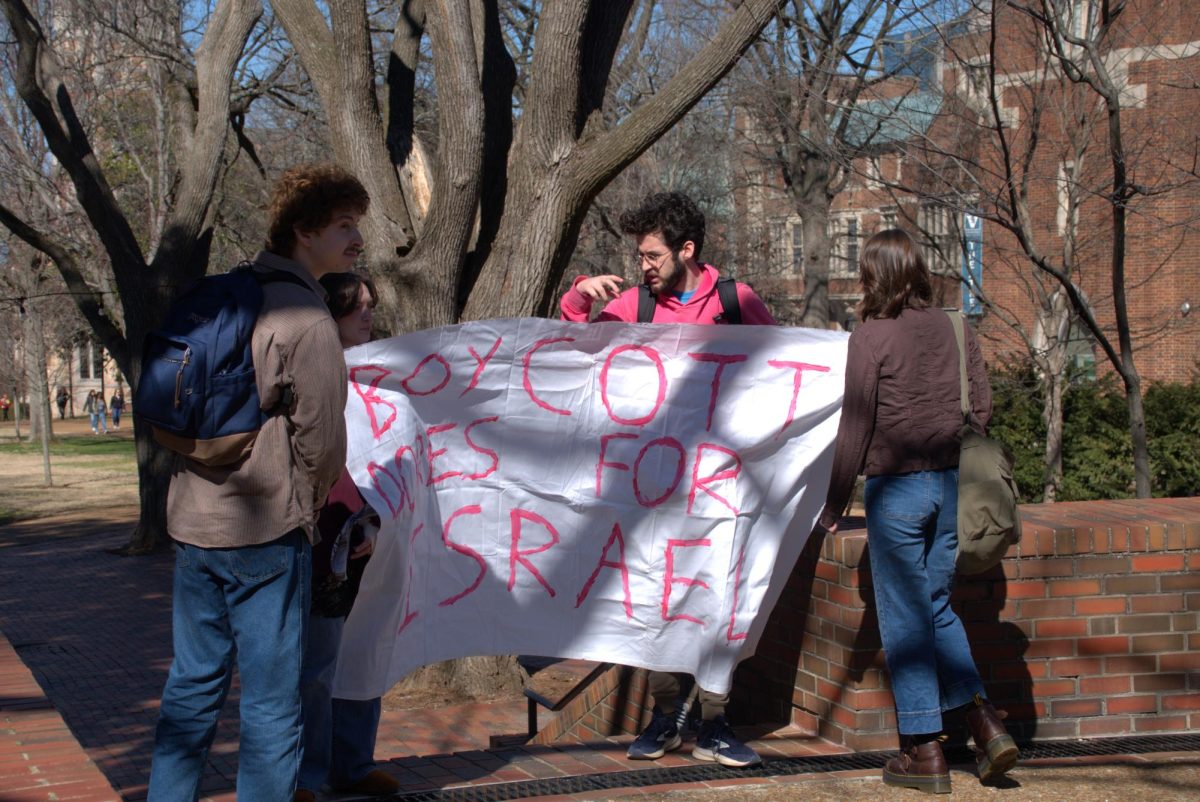
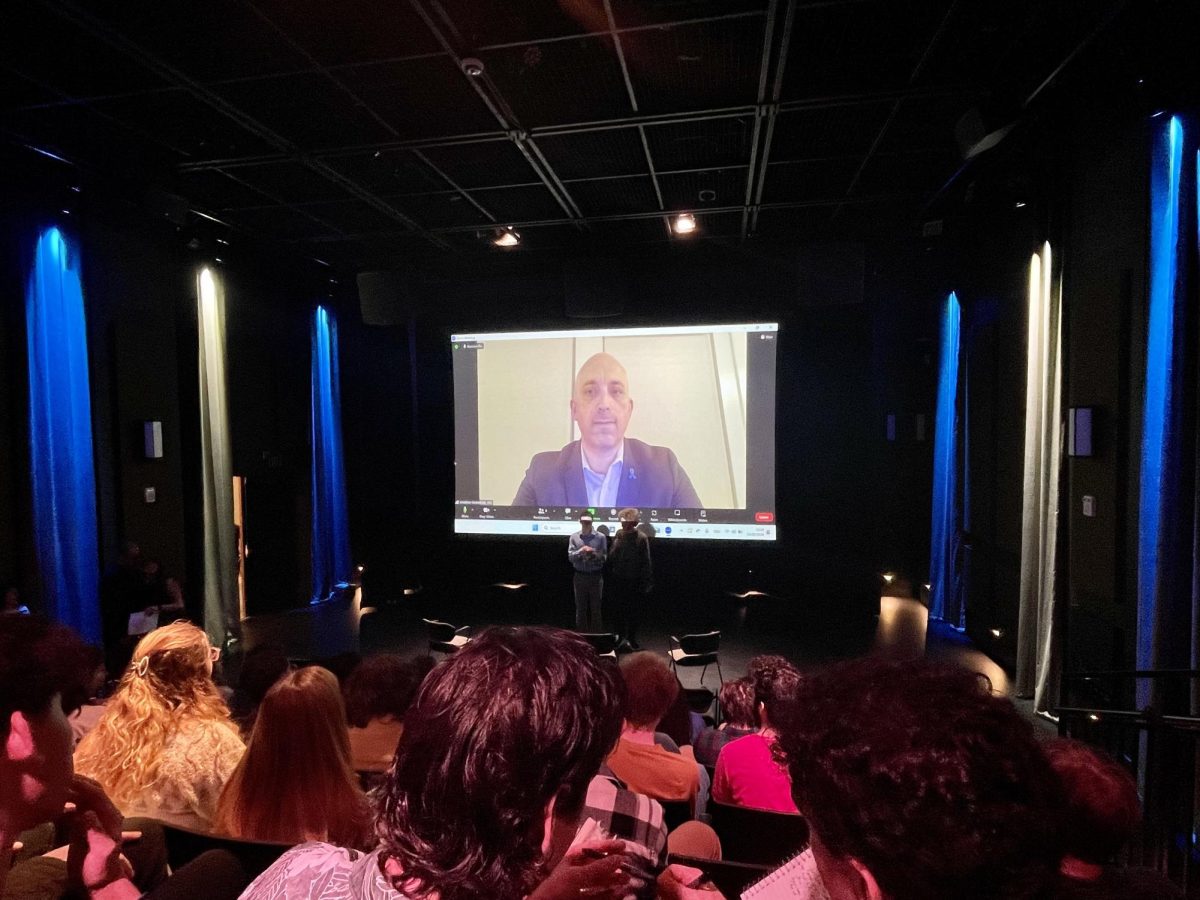
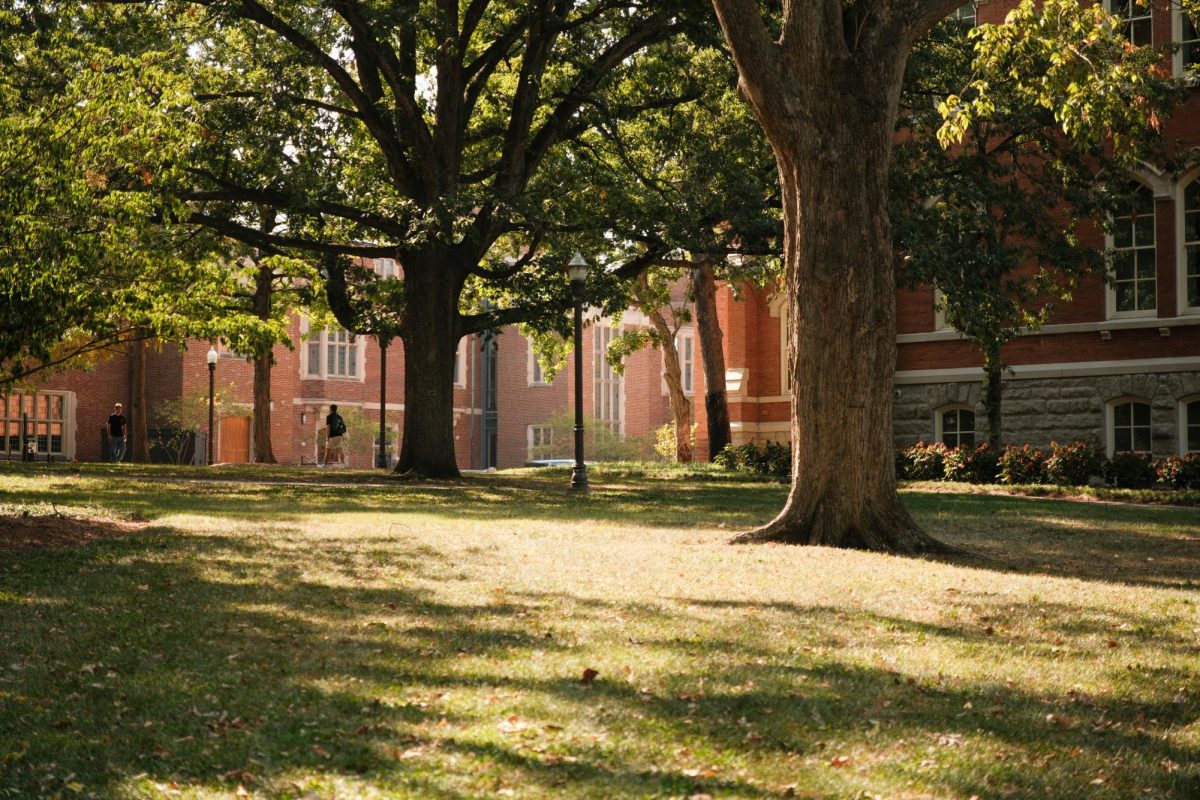

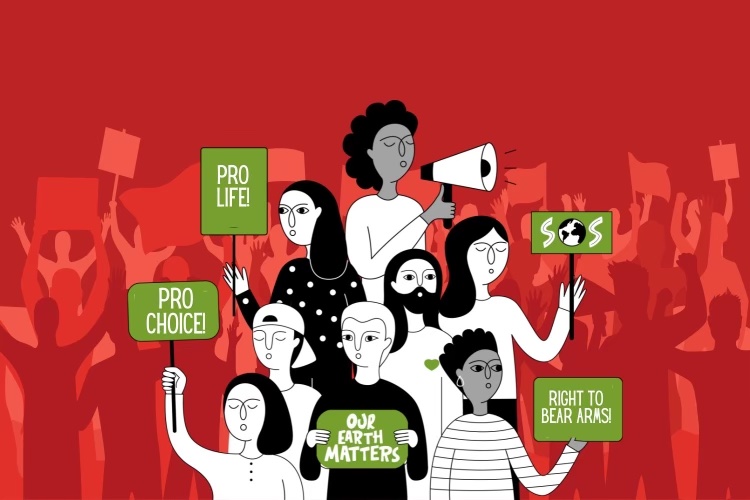
2022 Alum • Mar 2, 2024 at 10:40 pm CST
As a proud but concerned alum, I hope Vanderbilt can take steps to further encourage—instead of restrict—free speech and political expression on campus. Peaceful activism and free speech at universities such as Vanderbilt play a foundational role in enriching discourse on the most prominent political issues of our time.